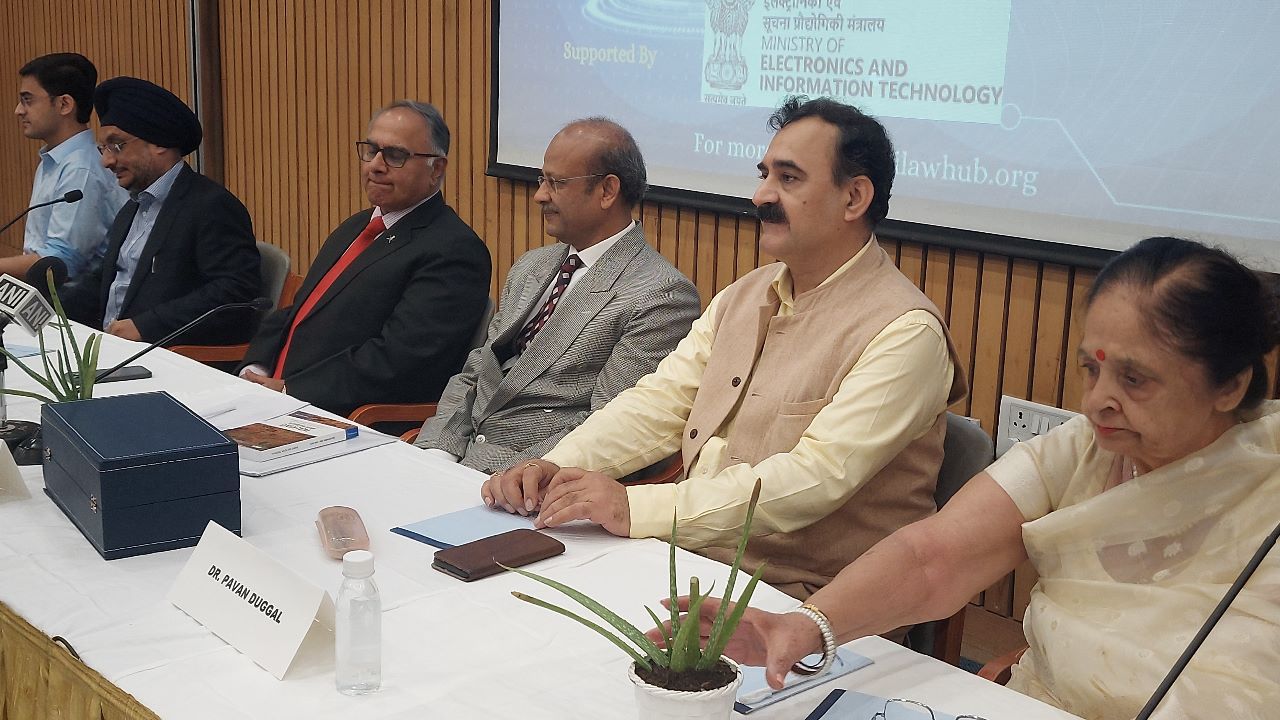Judiciary can play important role in harnessing AI benefits to address pendency of cases: Justice Rajesh Bindal
As Generative Artificial Intelligence (AI) has completely changed the landscape, AI is impacting every area of human activity and endeavour. For India, the world’s most populous nation, AI holds unique promises and opportunities. To look into the emerging trends on AI in the Indian context; and the approaches the government needs to adopt in order to facilitate rapid adoption of AI, an Indian National Forum on Artificial Intelligence was organised in New Delhi.
The National Forum was convened to collate various inputs and recommendations of identifying the key elements of India’s strategy on encouraging, enabling and regulating AI. The Forum called upon the government to have legal framework in India to not just legally recognize AI but also to regulate AI in the Indian environment.
During the meet on Thursday, discussions were held on: emerging trends on AI in the Indian context, approaches the government needs to adopt in order to facilitate more rapid adoption of AI by Indians, the type of support India needs to provide to the Indian business and corporate community to facilitate more ready adoption of Artificial Intelligence, how will AI including Generative AI impact business prospects in the Indian context, the type of Indian approaches required for dealing with business, economic, legal, regulatory and societal aspects AI including Generative AI, , are the existing legal approaches sufficient or does India require to move much further in the direction of policy issues impacting AI, the specific steps that the government needs to take to further promote the cause and adoption of AI in India, and a variety of other issues around the subject.
Inaugurating the forum, Supreme Court of India judge, Justice Rajesh Bindal, highlighted the growing significance of AI and the challenges and nuances that India as a nation is facing as well as various legal developments in AI at the global level. He called for having strong laws to govern the emerging technology.
‘There is an urgent need for India to address the legalities pertaining to AI by coming up with strong policy and laws in this regard. Judiciary can play an important role in harnessing the benefits of AI for addressing the challenges of huge arrears of cases in the Indian subcontinent,” he said.
Justice Bindal also spoke about the need for creating more awareness and capacity building among users vis-à-vis legal ramifications of use and dependence on AI. He also released a book, titled ‘ChatGPT & Legalities’, authored by Dr. Pavan Duggal, advocate, Supreme Court of India, and chief executive of Artificial Intelligence Law Hub.
Dr. Duggal, who is also convenor, Indian National Forum on Artificial Intelligence, underlined the need for India to come up with strong legal frameworks to not just promote and legally recognize but also regulate AI including Generative AI. He also said that India should demonstrate its thought leadership in developing and evolving AI legal jurisprudence. “The Forum’s recommendations came as the existing Indian Cyberlaw is not adequate to deal with various challenges thrown up by the advent of AI including Generative AI,” he said.
Lt. Gen. Vimal Arora, chief clinical officer, Clove Dental, Prof. G. S. Bajpai, vice-chancellor, National Law University, Delhi, and Prof. Sunil Kumar Khatri, dean (research, innovation and extension activities) at Amity University, Noida, were among others who addressed the forum. The panellists called for enhancing capacity building initiatives by both state and private sectors.

